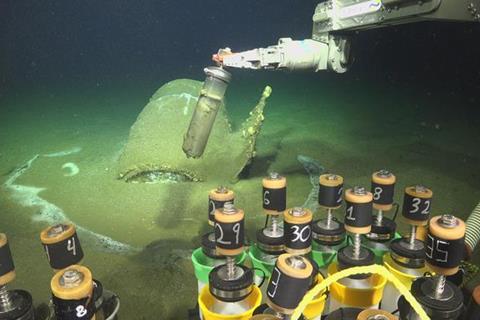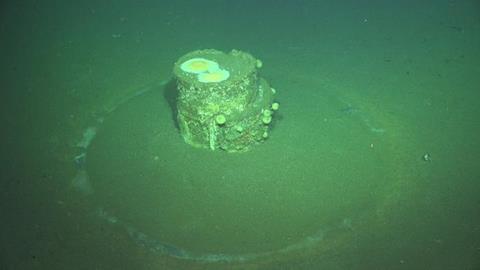Barrels filled with industrial waste that were dumped in the sea near Los Angeles more than 50 years ago are creating new microbial ecosystems adapted to highly alkaline conditions.

It has been estimated that hundreds of thousands of barrels of waste were dumped off the coast of California in the mid 20th century. Previous investigations suggested that the barrels once contained dichlorodiphenyltrichloroethane (DDT)—an insecticide known for its broad toxicity that was banned for agricultural use in 1972.
Another study suggested the barrels once contained low-level radioactive waste. In addition, some barrels were noted to have concrete-like encrustations around their bases or to have been encircled by white “halos” on the sea floor.
Corroding steel barrels
Paul R. Jensen and colleagues used a remotely operated vehicle to dive around 900 meters and collect cores of sediment around corroding steel barrels on the San Pedro Basin seafloor. The concentration of DDT and its breakdown products was elevated in the area, but there was no gradient with increasing concentrations as the cores approached the barrels, so the DDT likely came from a different source—possibly bulk liquid dumping.

The authors found the concretions to be magnesium hydroxide precipitation and the white haloes to be calcium carbonate. Both mineral artifacts were likely caused by leakage of alkaline waste.
Microbial communities around these barrels were low diversity and dominated by alkalophilic bacteria, not unlike those observed at hydrothermal vents. According to the authors, it will likely take thousands of years for the ecological effects of caustic alkaline waste dumping in the San Pedro Basin to cease.







No comments yet